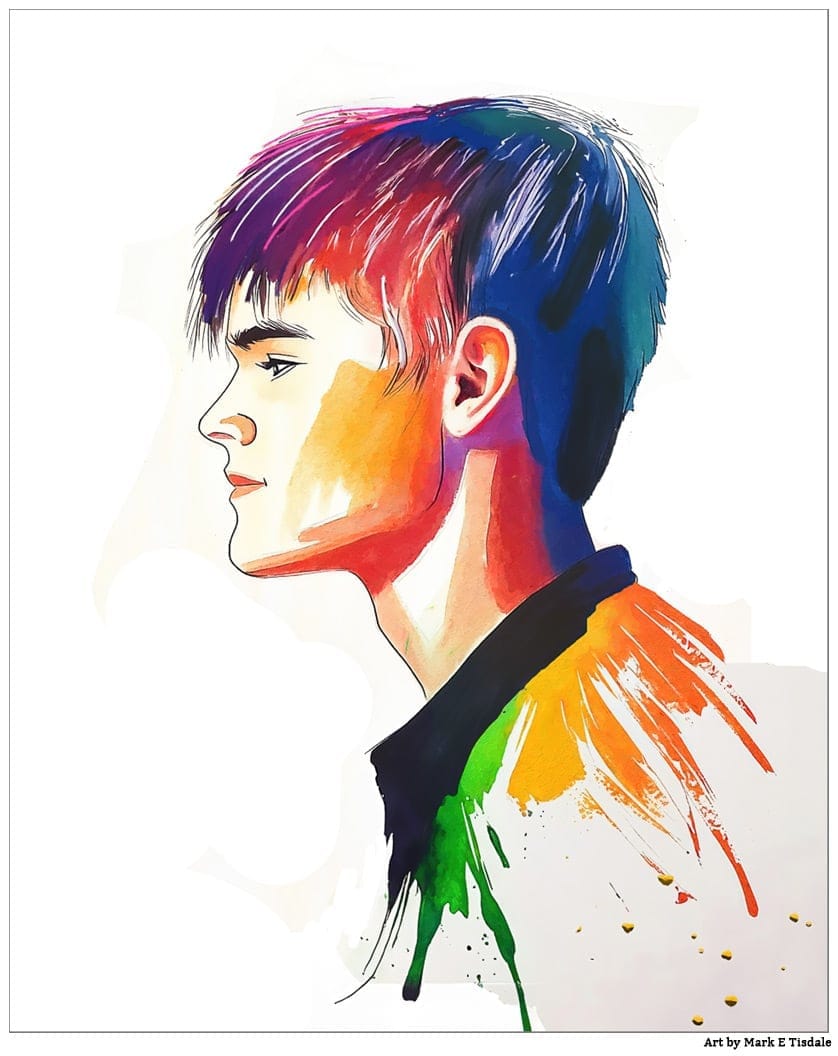The Enduring Influence of Matthew Shepard: A Gay Man’s Perspective 26 Years Later
Twenty-six years have passed since Matthew Shepard’s brutal murder, yet the event still brings tears to my eyes. Talking about this sometimes feels self-indulgent; I’ve mentioned it in past essays, notably one where feelings I’d disconnected from for years resurfaced fully last year. Until then, I had disconnected from the emotions I experienced surrounding Matthew Shepard’s death. Before last year, I never told a single soul how I felt. But each year, around the time of his death, when I would inevitably hear mention of him or see his photos, the tears came – in private, of course. It felt genuinely strange to grieve someone I never knew.
The way I had buried those feelings is difficult to describe. It wasn’t that I was unaware of who Matthew Shepard was or what happened to him. Rather, I didn’t consciously recall how his murder terrified me, how vulnerable it made me feel. At the time, I hadn’t yet confronted my own sexuality. I’m sure deep down, I knew I was gay, but as I mentioned before, I was so disconnected from my own feelings that I brushed it under the rug. Looking back, I often think that if there was ever a period in my life before now when I was likely to have found myself, it was during that brief window when I lived in an environment surrounded by queer people. I’ll never know for sure, but I do know that Matthew’s murder cast a long shadow over my life.
At the time, I felt a connection because I was freshly out of college and he was a college student. We were both born in December, albeit five years apart. On the surface, these similarities are paper thin, but years ago, I felt a kinship that I can’t really explain. While I’ve heard people say Matthew Shepard’s murder gave them the determination to come out, for me, it had the opposite effect. In my eyes, it felt like a flashing warning sign that being openly gay, as he had been, was inherently dangerous.
Last year, during a therapy session, I discussed these long buried memories with my therapist. I explained to him how I had suppressed these emotions for so long that they were all but forgotten. But the process of coming out and writing about my past had unearthed them. When he asked me to tell him Matthew’s story as if he were unfamiliar with it, I found myself sobbing far more than I had anticipated. Any notion of detachment, of treating it like an historical event, evaporated. Although friends had already read my essay, this was the first time I verbally shared that memory with another person, and I found myself crying once more. Months later when the 25th anniversary came around, for the first time I didn’t shed a tear. I felt sad and angry about his life being cut short, but I wasn’t moved to actual tears. Naively perhaps, I thought a demon from my past had been exorcised.
This year, as October arrived, I found myself feeling blue. In part this may be due to recently learning about an old friend’s death. But it also reminded me that I’m “always blue this time of the year.” For the first time, I questioned why. I love fall – the cooler temperatures and, although scarce here, the autumn foliage. So why the melancholy? Then, scrolling through Instagram, I saw someone share a photo of Matthew Shepard, reminding everyone of the anniversary of the night he was beaten so severely that he eventually succumbed to his injuries. In that moment, a realization crept in: perhaps I’m blue because my body instinctively knows the season, even if I don’t consciously think of it.

Yesterday, on the 26th anniversary of Matthew Shepard’s death, I started several times to post on social media about how his death affected me across the years. But each time, I hesitated. It feels strange to broadcast such emotional impact over a stranger’s death no matter how public it was. It was not how I was raised – my mom used to speak frequently about people who wanted to be “the bride at every wedding and the corpse at every funeral.”
Sharing these feelings feels on some level like an attempt to claim a part of the attention that Matthew’s memory rightfully deserves. I don’t want to do that. Yet, I feel compelled to acknowledge that the memory of what was done to him has haunted me across the years. I accept the likelihood that there will be more tears on future anniversaries. Perhaps accepting this ongoing impact is a step in the right direction?
Concluding Thoughts
In the process of writing this, I’m beginning to better understand that my connection with Matthew Shepard’s story isn’t about claiming part of his narrative. It’s about recognizing how his fate impacted my personal journey through life.
My tears aren’t just for Matthew Shepard; they’re for a younger me in 1998 who was scared and felt very alone. Those tears are for the shared trauma that many of us in the LGBTQ+ community have felt across the years, before and since. So many lives lost or scarred by similar stories. By acknowledging the impact of those lives, we honor not only Matthew Shepard but countless others like him. We also celebrate the resilience of a community that, in the face of such tragedy, still strives to live open and authentic lives.
Yesterday, I read about a conversation between someone closer to my age and a younger queer person. Apparently the younger individual didn’t know who Matthew Shepard was. This interaction reminded me how rarely our history is really taught. And it reminded me of the importance of sharing our stories and the stories of those who can no longer speak for themselves. It’s through these narratives that we ensure younger generations understand the path we’ve traveled to get where we are in the world today.
Themes
Explore more content with topics similar to the one you just read.


Thanks for reading!
If you’ve found my content helpful, insightful, or simply enjoyable, please consider supporting me with a Ko-Fi donation. Your generosity helps me continue creating valuable content. Thank you for your support!